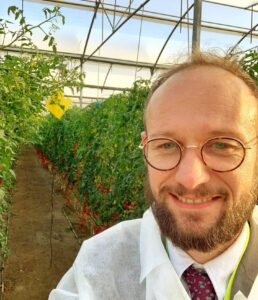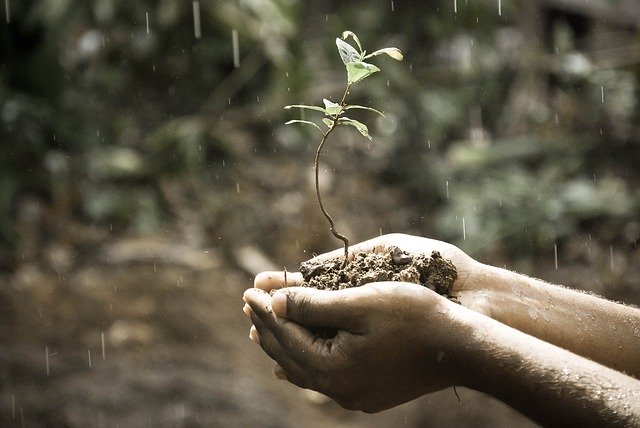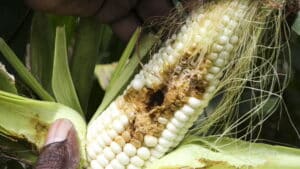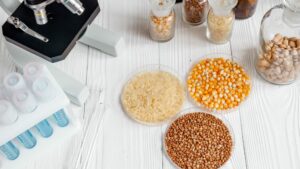The IYPH is an opportunity to raise global awareness on how protecting plant health can help
The United Nations General Assembly declared 2020 as the International Year of Plant Health. According to the Food and Agriculture Organisation of the United Nations (FAO), plants make up 80% of the food we eat, and plant pests are responsible for the loss of up to 40% of global food crops, and for trade losses in agricultural products exceeding USD 220 billion annually. Plant breeding is a major driver to secure the availability of food by strengthening resistance to plant diseases, insects and with that reducing crop loss. European Seed sat down with Christophe Rouillard, Technical Manager at Euroseeds in Brussels.
“This is a once in a lifetime opportunity to raise global awareness and inspiring people to learn more about plant health. Ensuring that seeds are healthy is the precondition for healthy crops and crucial for agricultural production as well the environment,” says Rouillard.
The European plant breeding sector has a long history record of its quality of seeds of improved varieties which makes Europe the largest exporter in the global seed market. Moving plants and plant products, including seeds across borders may be risky as this may spread plant pests and diseases, causing great damage to native plants and the environment. Yet, the enforcement by the seed sector of the EU regulation on protective measures against pests of plants, in compliance with the International Plant Protection Convention and international standards, helps keeping trade in seeds safe without setting up unnecessary barriers.
According to Rouillard, more plant pests are appearing earlier and in places where they were

never seen before due to climate change. “Plant breeding is the science of recombining plant genetics into new varieties with improved stress-tolerances and disease-resistance. Innovative approaches in plant breeding and seed production give farmers access to the best quality seeds that play a major role in helping them to respond to climate change and the new pest and disease pressures it brings.”
As with human health, protecting plants from pests and diseases is far more cost effective than dealing with full-blown health emergencies. And in fact, we’re seeing a very similar situation with the current COVID-19 pandemic. Experts have been predicting such an epidemic for over a decade now. Had preventive measures been taken, the costs for the global economy, not to mention the lives lost, would have been much, much less.
“Thus, prevention is critical for avoiding the devastating impact of pests on agriculture, livelihoods and food security. The public and private sector should invest more in plant health initiatives, research and innovative technologies to continue to be among the world leaders in seed production and to foster an economy that works for people and delivers stability and growth,” adds Rouillard.
The International Year of Plant Health is the opportunity for the European seed sector to highlight their practices in terms of plant health research and development, implementation of prevention and risk mitigation measures and therefore the contribution to the seed sector to deliver on the United Nations Sustainable Development Goals.
“It is crucial that we raise global awareness on how protecting plant health is crucial for the agri food chain,” says Rouillard. Protecting plant health can help feed a growing world population, protect the environment, and boost economic development. “We also need to engage with an interested public on how plant health is contributing to their daily life,” he adds. At the end of the day, we need to gain a greater acceptance of the importance of plant health.
The main messages Rouillard would like readers of this article to remember are:
- Plant health is incredibly important because plants form the basis of our food chain.
- Keeping plants healthy aims to achieve Zero Hunger and the UN Sustainable Development Goals.
- We need to keep plants healthy while protecting the environment.
- We need to make trading in plants and plant products safe by complying with international plant health standards.
- As with human health, protecting plants from pests and diseases is far more cost effective than dealing with full blown emergencies.
Did you know:
- Plants are essential to all life on Earth, including humanity. They provide the oxygen we breathe and over 80% of the food we eat.
- Protecting plant health can help feed a growing world population, protect the environment, and boost economic development.
- FAO estimates that up to 40 percent of food crops are lost to plant pests and diseases annually. That is why plant health is crucial to contribute to sustainable agriculture.
- Plants form the basis of our food chain. Without plant production there would be neither food for humans nor feed for animals.
- Promoting plant health is fundamental for reaching the SDGs Sustainable Development Goals












